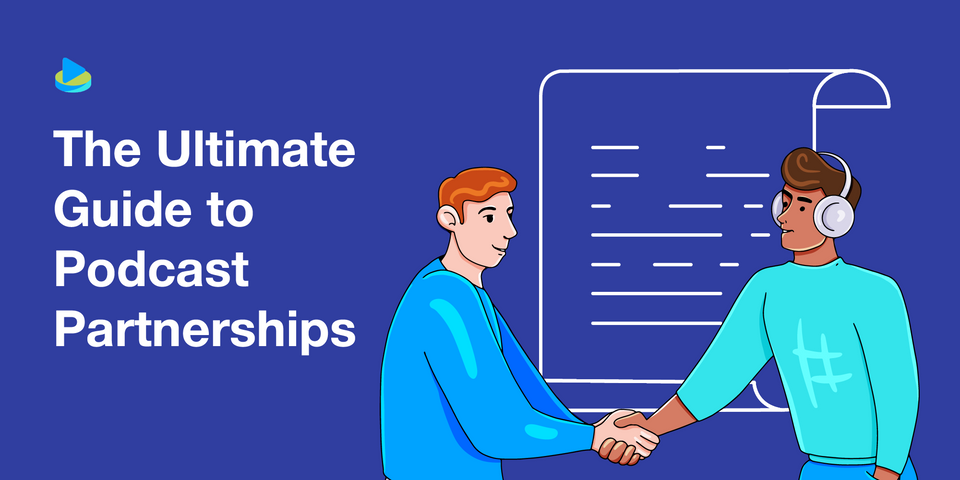Have you been mulling over partnering your business with a successful podcast? Or, are you a podcast host dreaming about increased awareness and download numbers for your show?
Done right, a podcast partnership can be a terrific way to promote your brand or podcast, so it's no wonder businesses from many industries are jumping on board.
But what are podcast partnerships, and how do you get the best out of a great collaboration?
Let's find out.
Table of Contents
What are podcast partnerships?
Brand + Podcast
Your business can significantly increase brand recognition by partnering with a successful podcast in your niche. Likewise, the podcast gains more listeners when you mention the partnership or promote episodes in your newsletter or social media.
Podcast + Podcast
Podcasters with similar audiences often form podcast partnerships to cross-promote each other's shows. Such alliances often increase audience growth for both shows because listeners like the collaboration when they hear it on one podcast, so they subscribe to the other to hear more.
Benefits of partnering with podcasts
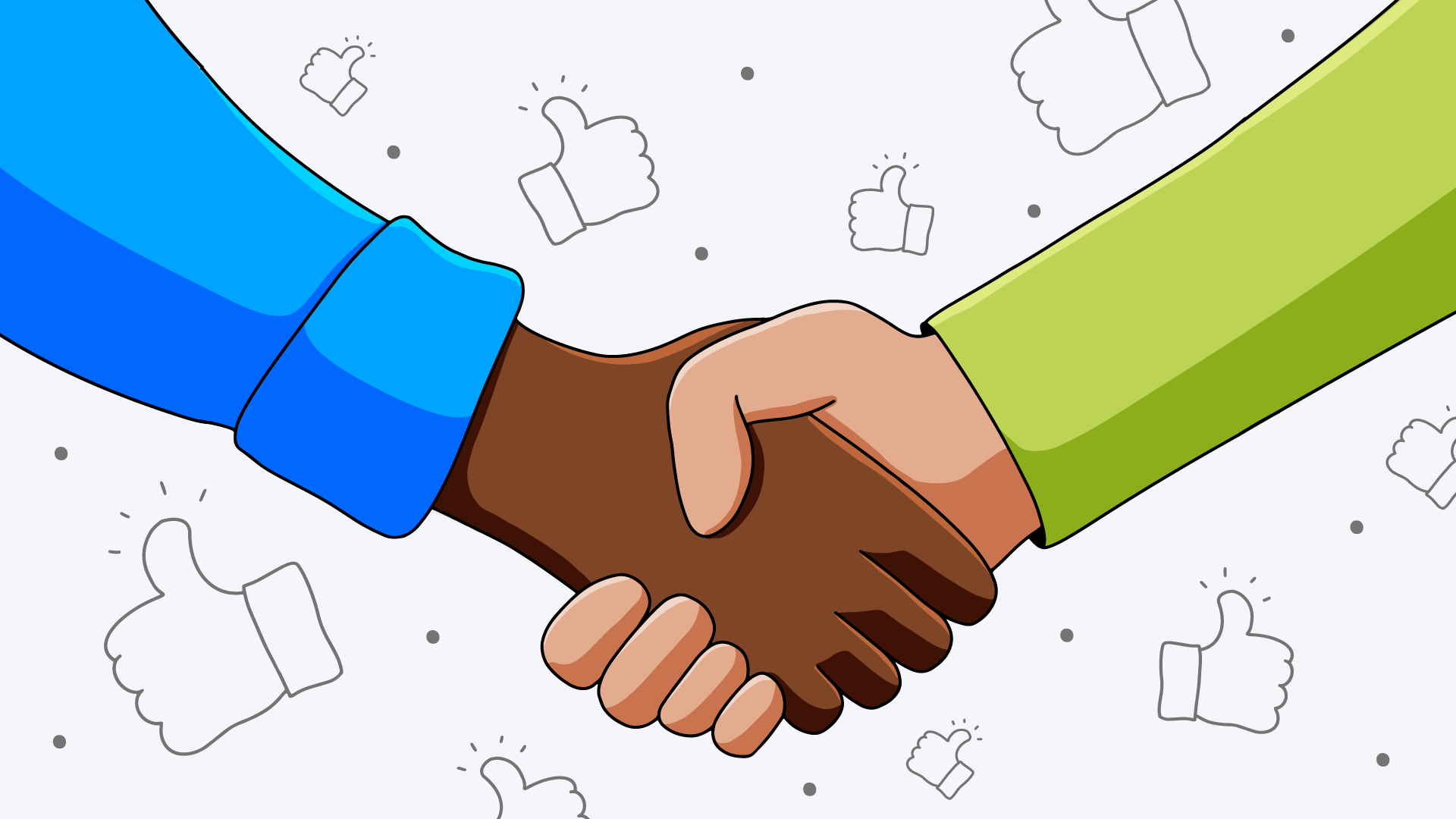
There's no one-size-fits-all when it comes to podcasts. Each show speaks to a specific niche, so partnering with the correct podcasts takes you straight to your target audience or introduces you to new markets.
Well-established podcasts with millions of listeners have a massive reach, but their partnership spots are often booked out months in advance. So you may find that partnering with micro podcast influencers proves to be more valuable. Their audience numbers may be smaller, but those listeners are often superfans. They trust the podcast host and are likely to check out products, brands or other podcasts they hear mentioned on their favorite shows - especially when featured on multiple episodes.
You might even consider getting in early and partnering with a new podcast if it's covering topics in an interesting or unique way that sets it apart from other industry podcasts.
Brands may see direct engagement as a result of a sponsorship or podcast ad. But even when people don't act immediately, they often remember you later when a problem arises. They'll choose your business over someone else because they heard good things about you on the podcast.
A guide to 'Brand + Podcast' partnerships
Podcast partners need clear goals to get the most out of working together. Are you aiming for audience growth? More awareness of your brand or product? Or are you promoting a book, course, service, or physical product? Understanding your goal for the partnership will influence how you decide to work together.
Brands and podcasts have four primary ways to work together; buying podcast ads, podcast sponsorship, appearing as guests or working together on a live show.
NB: If you host a branded podcast, it's also worth considering the approaches we lay out in the 'podcast + podcast' section.
Sponsorship

You can book one or more ad spots in suitable podcasts or sponsor a podcast in your niche for an agreed time or number of episodes.
Sponsorship are often run as ads but imply a deeper relationship between the brand and the podcaster. They work best when the brand and podcaster have an honest partnership. For example, the podcast host genuinely uses the brand and can speak authentically about how well it works.
Sponsors often offer discounts to podcast listeners who sign up/buy etc., through the podcaster's unique link. The podcaster may also be a brand or product affiliate and receive a commission for sales through their link. (Legally, you must disclose your affiliate status, so be upfront and honest about that.)
Need more information? We wrote a comprehensive guide on How to Sponsor Podcasts which you can find here.
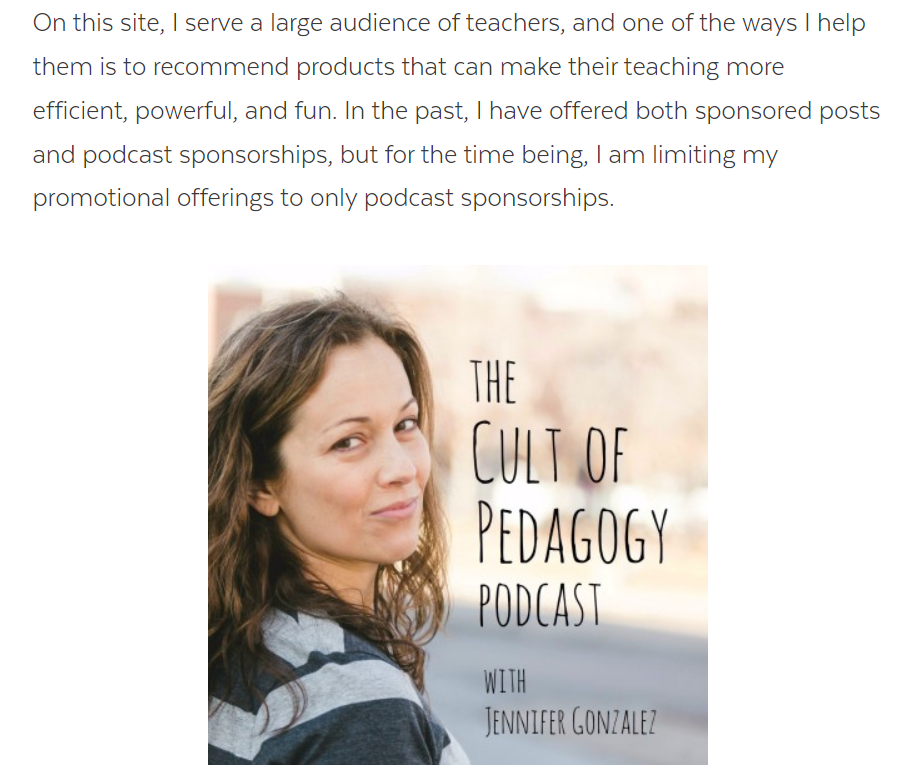
You'll have several decisions to make before starting these sorts of podcast partnership.
- What is your goal for the ad campaign?
- Ad position (where will it run in the episode?)
- Your ad budget
- What type of ad will work best for your campaign?
Ad Position
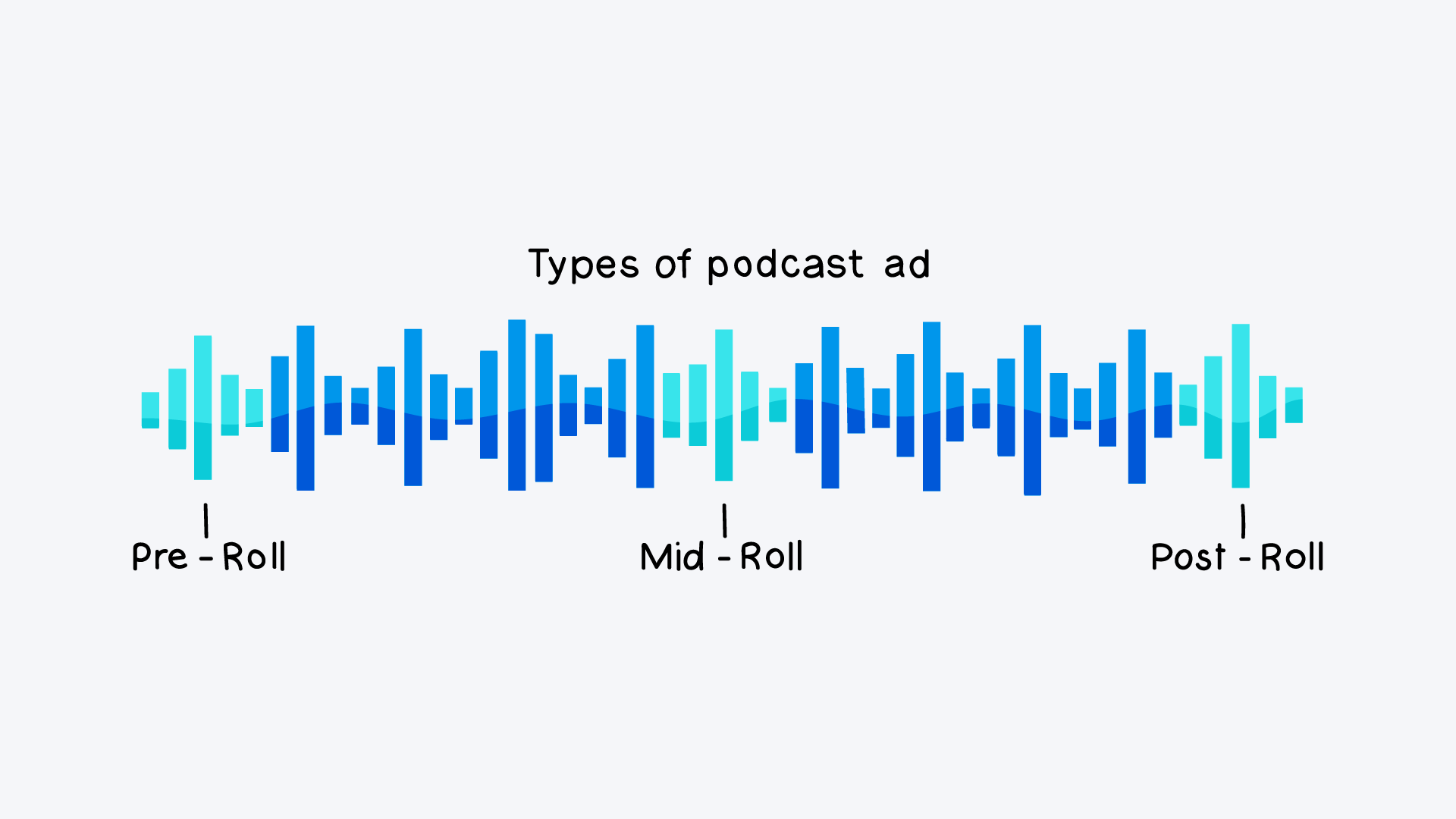
Podcasts have three positions for ads: pre, post or mid-roll. Pre-rolls are the ads you hear before the podcast starts, and post-roll ads go at the end. Mid-roll ads (run during the podcast content) are often more expensive because they're longer, and listeners are likelier to let them run. Post-roll ads are usually cheaper because it's easier for listeners to stop the podcast before they play.
Baked-in or dynamic?
Podcasts that accept sponsorship or advertisements will offer either dynamic or baked-in ads.
Baked-in ads are recorded as part of an episode, meaning they're played every time listeners download that episode. Dynamic ads are inserted at a marked spot in the script. They run for an agreed amount of time (or downloads) and then change.
Ad types
Ads are presented in several different ways.
- The podcast host may speak naturally about the product or business. These ads work best when the podcaster discusses a product or service they personally use and love. If the host hasn't worked with you before and you want a genuine endorsement, offer the host a free trial of your product first to experience it for themselves. The brand often supplies points they want mentioned in an endorsement-type ad but leaves the script up to the host.
- Host-read ads can also be tightly scripted. In this case, you supply the script, and the podcaster reads it exactly as written.
- Product placement ads are pre-recorded and sound more like radio ads. They're commonly used as dynamic ads, whereas host-read ads are more likely to be baked-in.
If you're new to podcast sponsorship, we offer a template example in this article.
Guest Appearances
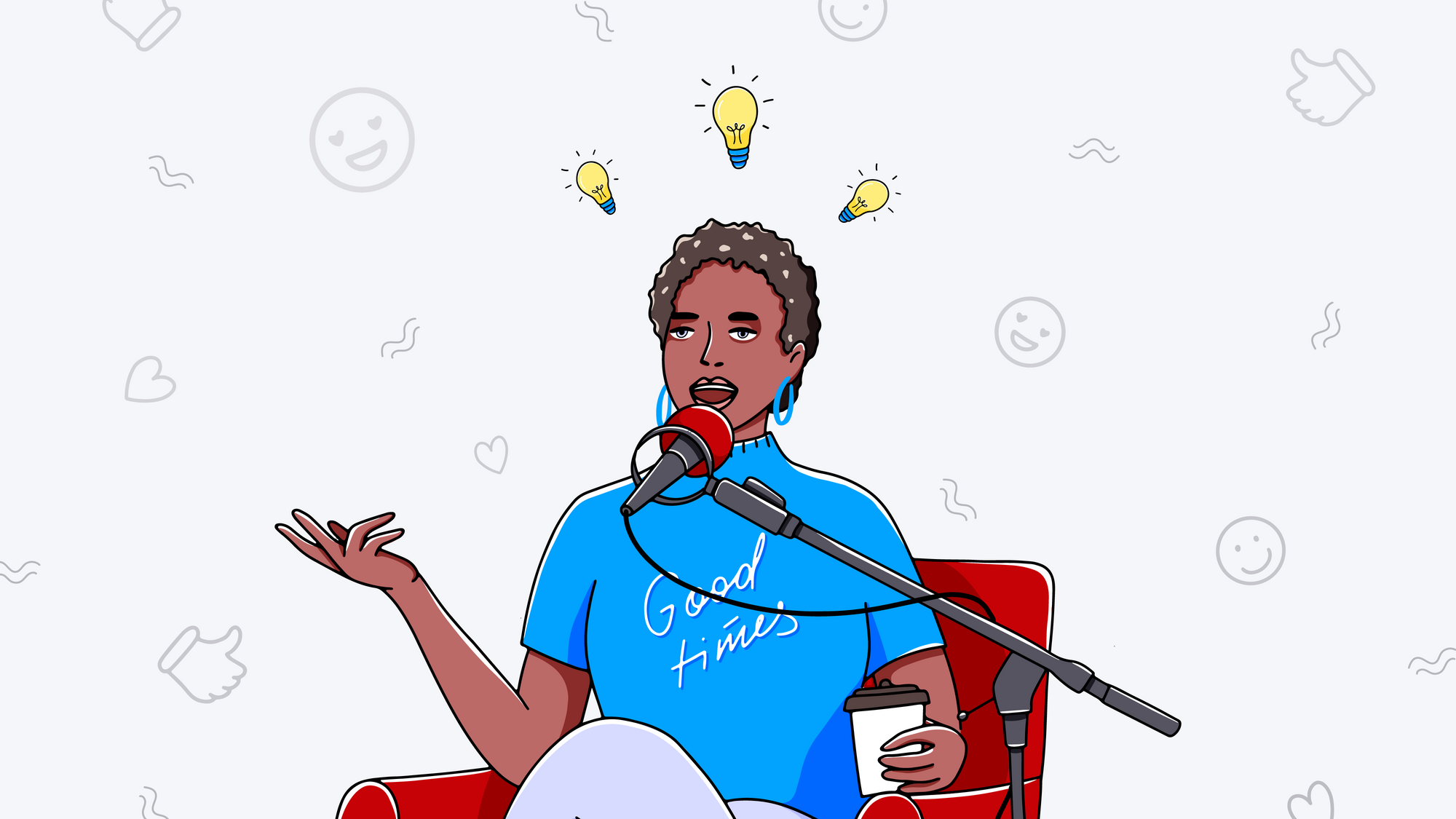
Doing podcast interviews is an excellent way for business leaders and brands to get in front of their target audience. Depending on your goal, you could take several different paths with guest appearances. For example:
Brand awareness goals: The company founder or CEO tells the company's origin story.
Build trust goals: Add to the interview by advising on common problems in your industry or specific problems the listeners may have.
Sell a product or service goals: Use the interview to explain how and why you developed it and how it solves a problem for your target audience. Give valuable tips on how people could work with your product - and even describe how they could solve the problem in other ways.
Guest appearances create win-wins for everyone involved. They provide content for the podcast host (and social media content for the brand.) Interesting guest interviews showcase the brand's value to its target audience, increase the podcast download numbers and may lead more people to subscribe. At the same time, the audience benefits by learning valuable information from an industry leader during your entertaining and informative interview.
(Check out our article "How to Get Interviewed On Podcasts" for more information on podcast partnerships through guest appearances.)
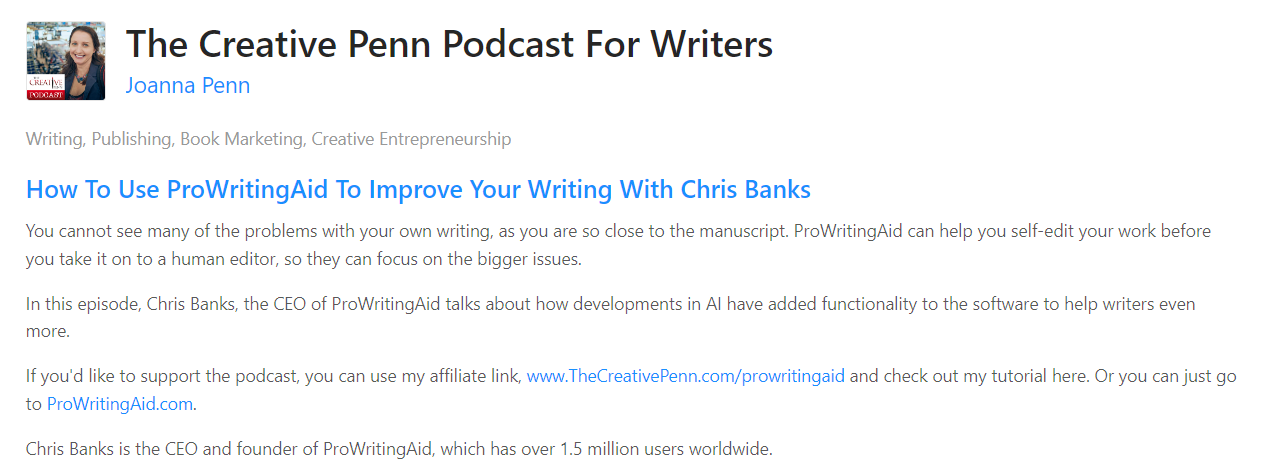
Live podcast shows
Shows with reasonable podcast subscriber numbers and proven entertainment value sometimes present live events where fans buy tickets to watch the show. The podcast host usually records the live event and uses it later to form one or more new episodes.
Live shows can present sponsors with another excellent opportunity to form podcast partnerships. Ways to be involved include:
- Pay some of the production costs
- Feature the shown social media
- Offer spot prizes
- Make a guest appearance on the live podcast
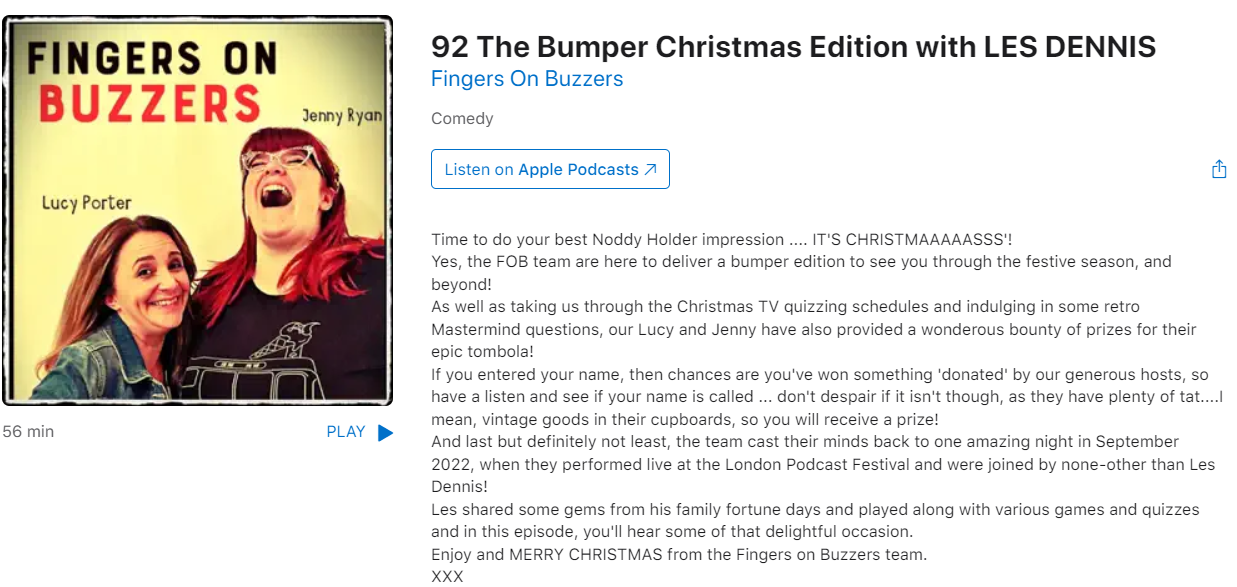
A guide to 'Podcast + Podcast' partnerships
There are many ways to partner with another podcast host and enhance both shows.
Ad swaps
Recording a podcast promo can be an effective way to attract new listeners to your podcast. Swapping promos with another podcaster in your niche alerts your audience to new and interesting podcasts that they may enjoy.
Shout-outs
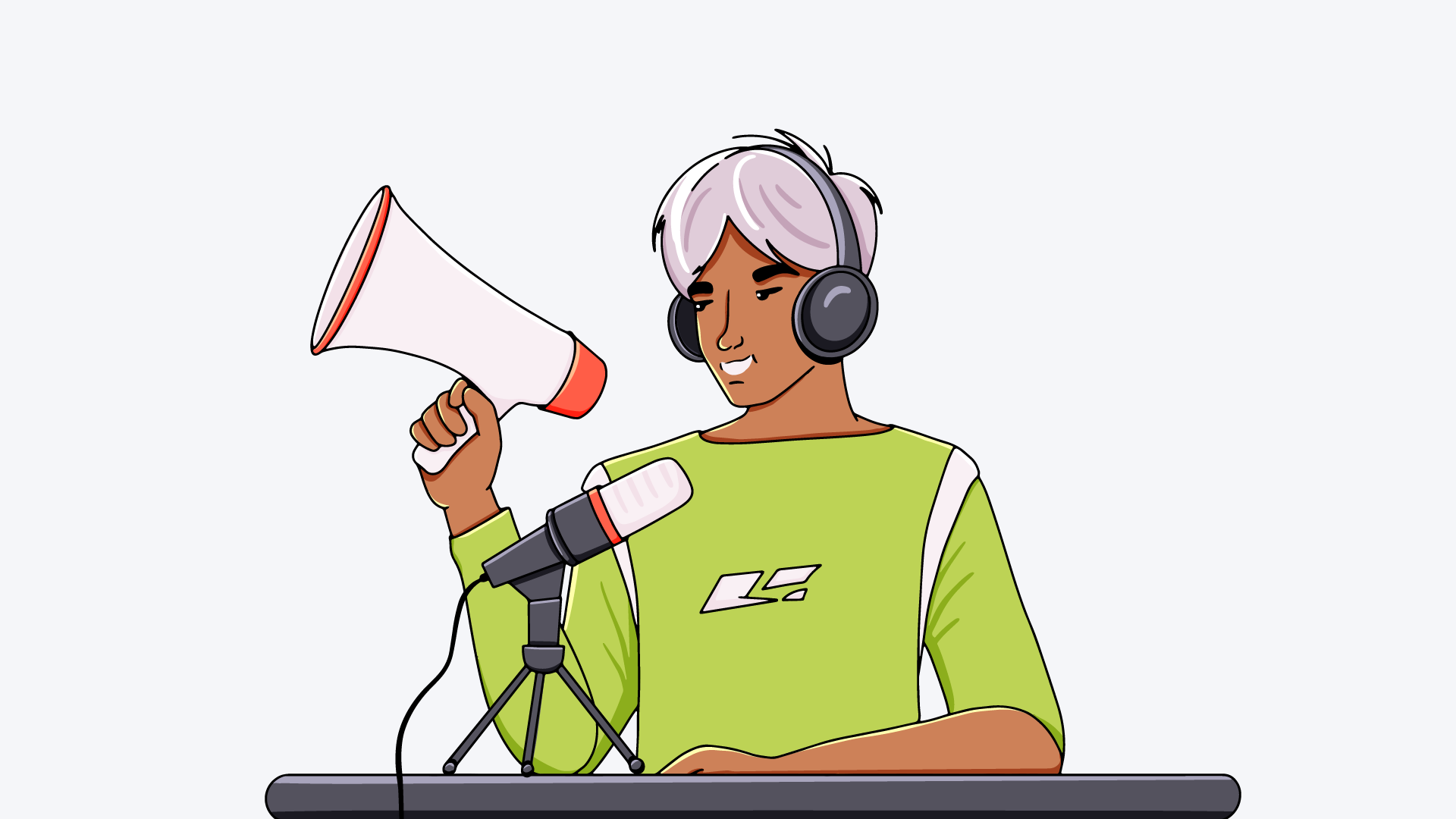
Podcasters can agree to give shout-outs to each other during your podcast and/or on social media. The deal could be to create your own social posts about the other podcast (works well if you're genuine fans of each other's work).
Alternatively, each podcast host can create Facebook or Instagram posts for the other podcaster to share. Depending on where your audience hangs out, you could also comment and retweet each other on Twitter or respond to each other's LinkedIn articles or newsletters.
Guest interviews
Where two podcasters have similar or overlapping audiences, they often partner up for guest interviews on each other's podcasts. A guest interview gives you more time to impress the audience (and hopefully attract them to subscribe to your podcast.)
Be creative and market the interviews by featuring them on your blog or website, posting them on social and sending the link to all your email newsletter subscribers.

Mini-series
One creative idea for podcasting collaboration involves making a mini-series together. You can each feature it as part of your existing podcasts, run it between seasons or create a new show for the series.
How to ace your first podcast partnership
Use Rephonic
You may find podcast partnership opportunities in your network. But millions of podcasts are now broadcasting on Apple, Spotify and all the smaller platforms, so you're bound to miss some great opportunities if you stick to the people you know.
Rephonic is a podcast database with detailed information on over 2.5m shows. Created in 2020, Rephonic responded to the explosive growth of the podcasting industry and the vast opportunities that emerged for Marketers, Advertisers and PR teams by providing the data and links they needed to find the right podcast partnerships.
New to Rephonic? Read our article, "What is Rephonic," to learn how and why we work so well.
Establish your goal
As we mentioned earlier, podcast partnerships work best when both partners clearly understand the relationship and what they hope to achieve from it.
Determine your budget
Podcast ads and sponsorships may be charged at a fixed-rate/flat fee or as a CPM (cost per mille) which offers a rate per thousand listeners. (E.g., if the CPM is $30 and the podcast has ten thousand listeners, that ad would cost you $300.) You can learn more about pricing in our Podcast Ads article.
Find podcasts in the right niche
Use Rephonic's search tool to discover podcasts in your niche or related areas. You can search by subject, title, publisher or even find episodes from different podcasts that cover a topic.
The search tool includes ten filters to help you find suitable podcasts:
Sort: Lets you see the podcasts in order of their listener numbers, relevance, engagement, how many episodes they've published and more.
Listeners and Social: You can search for podcasts in a specific range (e.g., 100,000-300,000 listeners or 20,000-50,000 social reach.)
Category and Language: Specify the podcast categories or sub categories for your search, and choose the language or languages you work in.
Active: Many podcasts are inactive at times. That could be because the podcast host is no longer recording or simply that they are between seasons. Select the Active button if you're only interested in currently active podcasts.
Audience Location and Gender: Select these to specify audience demographics. E.g., If you target an audience of US women, choose "USA" and "skews female" to find podcasts with those listeners. Likewise, if you speak to South African men and women, select "South Africa" and "50:50".
Format: Can specify podcasts with a guest interview format.
Engagement: We score audience engagement based on recent comments and reviews. Select an engagement range anywhere between 0 and 100.
Publishes: Podcasts can publish daily, weekly, monthly and more. If the podcast's frequency matters to your campaign, you can specify what you want here.
Episodes and Founded: Select from an episode range of 0-2000+ and a Founded range of 2004 till now.
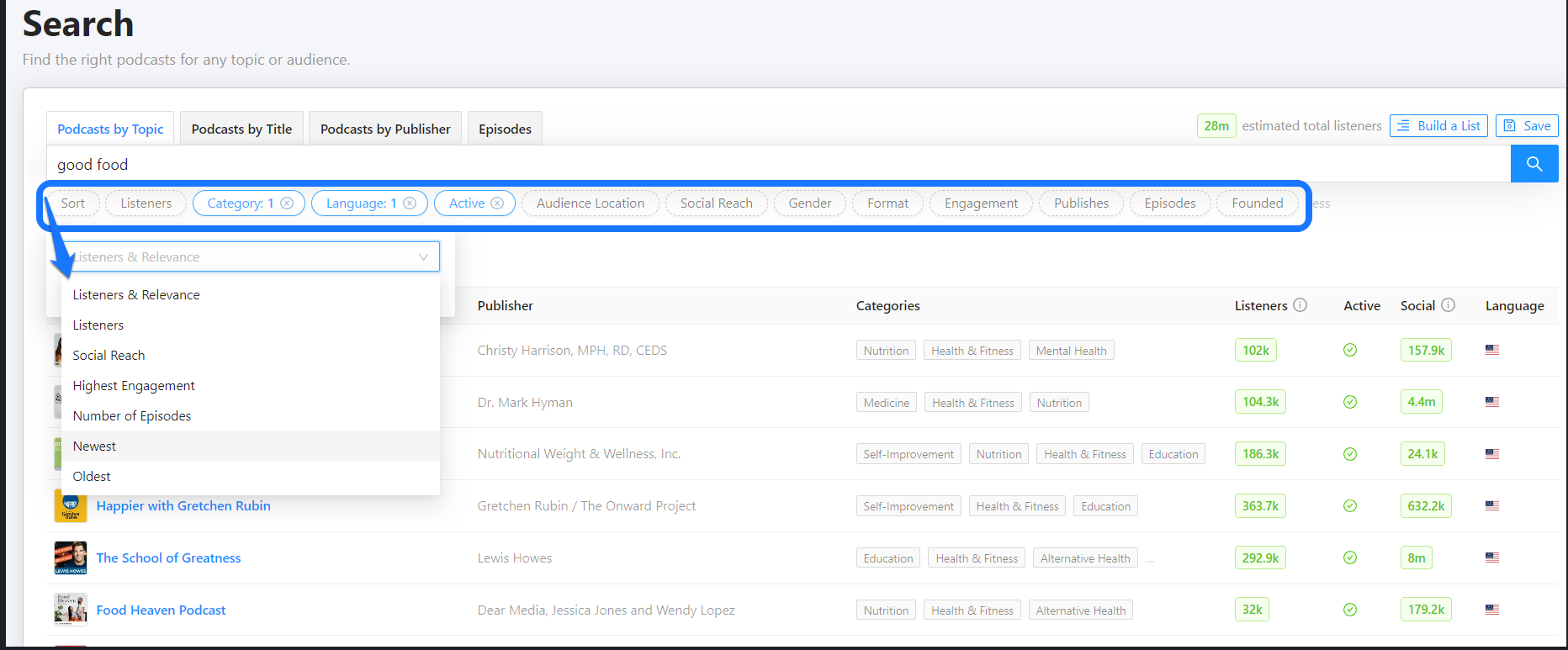
Look up their stats
Narrow down your list of possible podcast partners by reviewing their stats on Rephonic.
These articles show many examples of podcast data: "How to See How Many Listeners a Podcast Has" and "Six Simple Ways to Measure Podcast Success."
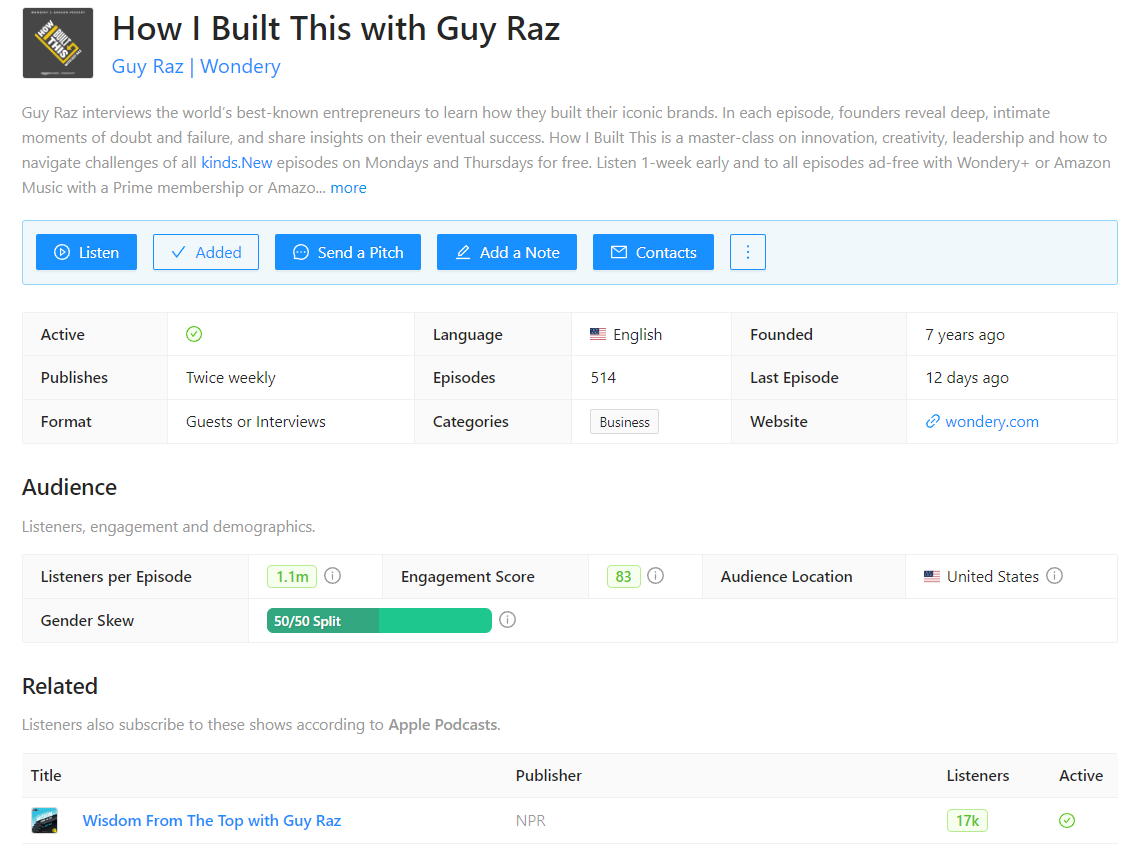
Develop a proposal
Review your goals and develop an attractive partnership proposal. It must be good for the podcast host and help you achieve your campaign goals. You may want to see their media kit first (it should be available on their website) to see what sponsorship or ad packages they already offer.
Pitch the podcast
With all your information in place, it's time to pitch your ideas to the podcast host using Rephonic's proven templates. If you're new to pitching, this "How to Pitch a Podcast" article will take you through all the steps to create the best possible pitch.
Put together an agreement
Podcast partnerships are a business arrangement, so you need the proper paperwork. Set yourselves up for success by discussing the process and putting a contract in place before you start.
Your podcast partnership agreement should ensure that each person knows their responsibilities and include time-frames and due dates—especially if you're doing something complicated like a mini-series or collaborative episodes—to keep you both on track.
Collaborate
Work together on ads, sponsorships, guest appearances and more. If you've done your homework right, you should enjoy a successful podcast partnership and hopefully set the pattern for more collaborations to follow.
Final words
Steve Jobs once said, "Great things in business are never done by one person; they're done by a team of people."
Similarly, podcast partnerships done well can significantly benefit everyone involved. If you're looking for increased awareness, larger audiences, more customers and revenue, it's worth getting creative with podcast partnerships.
Rephonic provides more than data. We offer email and social media contact addresses, sponsorship and guest pitch templates and a handy embed tool that makes it a cinch to embed reviews on any web page.
When you're ready to connect with like-minded podcasters and take your podcast outreach to the next level, turn to Rephonic.

